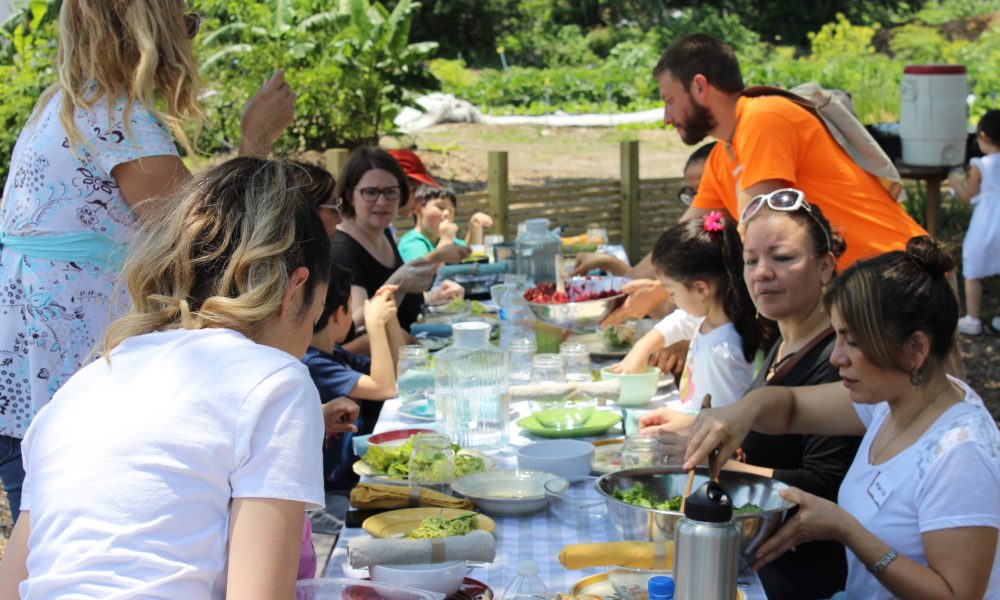

Today we’d like to introduce you to Daniel Garcia-Prats.
So, before we jump into specific questions about the business, why don’t you give us some details about you and your story.
I was born in Houston on Sept. 1988, the 8th of an eventual of ten sons (yep there’s ten of us – all boys). My upbringing in many ways was shaped by my brothers, both older and younger. We’re close to each other and our parents did a wonderful job instilling in us a sense of love, responsibility, and caring for each other. We all graduated from St. Francis de Sales and Strake Jesuit but, interestingly, each of us went to different colleges. While we share much in common, we are each very different individuals that have chosen different career paths.
College was my first change to live outside Houston and I wanted to experience a very different place than Houston. I ultimately headed to Santa Clara University in Northern California to pursue a degree in mechanical engineering. It’s a great school that provided me wonderful opportunities both academic and cultural including facilitating a semester studying abroad in Brisbane, Australia, my first time outside the country (besides a short trip or two across the Mexican border). A 5th year Masters option at Santa Clara was an attractive offer that I took advantage of after completing my bachelors in 2011.
While pursuing my master’s degree at Santa Clara Univ., I got a job as a manufacturing intern at a medical device startup in Palo Alto called Peak Surgical. Little did I know it would be a whirlwind 14 months ahead; the acquisition of the company by a larger medical device company, FDA audit, promotion to associate mfg. Engineer after our senior mfg. Engineer left, ramping up of production capacity for a new scale of sales force, announcement of the company’s decision to outsource our manufacturing to Mexico, outsourcing my job including spending two (2) week in Tijuana helping get their production lines running, until finally getting laid off with the rest of our manufacturing and operations team just a month before finishing my Masters degree.
The timing was relatively fortuitous for me and allowed me the freedom to explore a diversity of new opportunities. Silicon Valley, synonymous with technology, startups, and innovation, would seem like the ideal place to be for a young engineer. However, as I began exploring opportunities in the area, I felt a pull back home and strong desire to be back around family. Ultimately, I decided that while I didn’t know what my next steps would be, I knew for certain that the people I should surround myself with to help me sort through it were my brothers.
I moved home to Houston in early 2013, getting a job as a manufacturing engineer for a small local oil and gas manufacturer, and at the invite of my older brother Mark (#6), an educator at the time, and his wife Diana rented a room at their house on the East End. Around the same time, my other older brother Tommy (#7) had moved back to Houston after his most recent stint farming in Nicaragua. He had intended to find a job farming in the Houston area but struggled to find opportunities, especially in organic and sustainable farming operations. In many ways, the lack of agricultural opportunities for Tommy was the genesis of our current venture.
Tommy began teaching gardening at a school in the Gulfton area through Recipe for Success and was shocked at the prevalence of obesity among his young students. For Tommy, there was a direct connection between his inability to find a job farming and the staggering levels of obesity in children. At the time he was considering searching elsewhere in the country for farming opportunities, but his experience at the school made him feel that his talents as a farmer could be best used here in Houston to help build a healthier city.
Tommy, Mark, and I began meeting weekly for what we jokingly called the “Meeting of the minds” to brainstorm ways in which farming could challenge the food access and diet-related health issues in Houston. This went on for several months as we developed the concept for urban farming further, writing a business plan, establishing our core philosophy, identifying key metrics for success, and addressing obstacles that could present challenges. As things continued to snowball, I became more and more invested and involved in the idea. Each of us brought something unique to the project; Tommy with his background in innovative organic and sustainable agricultural practices; Mark with his background in education and pursuit of his MBA in commercial real estate finance; and I hoped to bring my technical engineering background, experience in operations and production, and a blossoming interest in and passion for social entrepreneurship. A local businessman heard we were searching for land to pursue an urban farm and offered the use of a property his company was not utilizing which would eventually become our first farm.
In early 2014, I quit my job and together with Mark and Tommy, founded Small Places LLC and launched our first farm, Finca Tres Robles (Spanish for “Three Oaks Farm”), located just a few miles east of downtown in Houston’s historic Second Ward. Over the past 4+ years, we have transformed the once vacant 1.5-acre lot into a productive farm that serves to improve the health of our community and challenge the health issues facing our city. We’re just getting started and have a vision of expanding agriculture to all communities in Houston to install health infrastructure into our communities that can connect us to our food, our community and our neighbors.
Great, so let’s dig a little deeper into the story – has it been an easy path overall and if not, what were the challenges you’ve had to overcome?
Our journey has not been without challenges. Farming, in general, is not perceived as a serious business venture or a viable option to earn a living or turn a profit. Many view urban farming in particular as work that should be charitable or does not recognize the value of including farms in urban spaces. Additionally, the culture surrounding food and the demand for convenience, the prevalence of poor eating habits, and consistency of dining out creates a large hurdle for us. However, there is a desire from people to learn and alter habits but limited resources to support these changes. The comprehensive education and community components of the business are vital in addressing these challenges. Becoming a part of the shift in this perception and culture adds value to our business.
Land access and security also have been a major challenge to launching and scaling our business, especially as a bootstrapping startup. We have had two (2) separate attempts to secure and purchase our current property be undercut at the last minute. For these urban agricultural spaces to fulfill their potential health impact, they must be embedded in these communities for the long-term, ideally permanently. A large motivation for launching the company was to put ourselves in a position to be leading contributors to developing public policies for making land more accessible for agriculture in the city. We strongly believe that with properly thought out policies, Houston could make long-lasting, system changes to significantly improve the health outcomes and quality of life of underserved and forgotten communities in and around the city.
Affordability has been a challenge in making our products more broadly accessible to everyone in our community. Margins on fruit and vegetable production are quite small and that makes keeping our prices low difficult. We offer East End discounts for our CSA members that live in the four (4) zip codes around us to encourage our neighborhood by taking advantage of our fresh produce. Even with the discount, the CSA program can still have financial barriers for many. This has forced us to be creative and innovative, choosing instead to invest our time and energy to develop other methods of distributing produce throughout our neighborhood and focused on maximizing the impact our products can provide. In the Spring of 2017, we launch our Community Farm Share program in partnership with Ninfa Laurenzo Early Childhood Center, the local HISD preschool just a few blocks from the farm, and the Houston Food Bank. Our farm earmarks ten (10) CSA shares to go to deserving families at the preschool and we have found generous community members to sponsor families, allowing us to provide these weekly bags of produce for free. Through the Houston Food Bank, the parent attends monthly healthy cooking classes on the farm to navigate ways to prepare the fruits and vegetables that will be in their bags for the coming weeks. By collaborating with the local preschool and the Houston Food Bank, we are able to overcome the affordability gap to provide our fresh produce and healthy cooking education to members of our community that would not have it otherwise.
Small Places LLC and our Urban Farm Finca Tres Robles – what should we know? What do you guys do best? What sets you apart from the competition?
Small Places LLC was founded to develop an innovative and market-driven solution for dealing with the growing issues surrounding the frightening realities of the lack of agricultural opportunities and the related health and food access disparities in much of the Houston area. In 2014, we started our first urban farm called Finca Tres Robles (Spanish for”3 Oaks Farm”) to be a resource for residents of Houston’s East End. On 1.25 acres of leased land in the Second Ward, we sustainably cultivate fresh produce that we distribute through the farm and community partners to serve those residents closest to the farm. We also host classes and field trips on a wide range of topics and provide the space as a cultural center for events, dinners, and gatherings. Each aspect of the farm serves as a vital function in bringing our community together around healthy living.
Even though we have been spending more and more on health care, we have continued to grow unhealthier. Eighty-three cents of every Medicaid dollar goes to treat chronic health issues such as heart disease, stroke, type 2 diabetes, and obesity. These are among the most costly and preventable of all health problems, most of which are directly related to diet and lifestyle. Healthcare does not equal health, and we’re not alone in recognizing this. Deloitte, a global consulting firm, found that 80% of health outcomes are determined by social and environmental factors. Altering the way we eat, live, and connect with our neighbors is where we must begin to change the health outcomes within our communities.
With a lack of resources in our neighborhoods to support a culture of health, Small Places uses agricultural production as the focal point of multi-use developments to support community residents and stakeholders in building a healthy neighborhood. Our farm earns revenue through three main products:
the sale of our produce distributed through our on-site farm stand, CSA Program (customers pay upfront for a weekly bag of farm-fresh produce), farmers markets and restaurants (We grew almost nine tons of produce in 2017 alone with 70% remaining in the East End),
the hosting of classes and field trips, and
through the use of our community space as an event venue for hosting and renting.
Further, Finca Tres Robles has been used as a proof of concept and a testing ground for our farm processes and systems with the continued goal of streamlining our operations to support expansion across the Houston area. A number of other organizations from hospitals, to nonprofits, to real estate developers have reached out to us about starting urban farms, recognizing the value of incorporating agriculture into their campuses, community centers, and developments. There is a desire to expand urban farming opportunities but a gap in the knowledge and expertise to make these spaces productive and impactful health of the communities they serve.
Small Places will fill that gap by providing Consulting and Farm Management Services where we are hired to design, implement, and manage farms for a client organization. For the past several months, we have been consulting with LBJ Hospital to help them launch a Community Farm on its campus located in the Kashmere & Trinity Gardens neighborhoods in northeast Houston. LBJ Hospital serves the largest catchment of any hospital and serves the most impoverished neighborhoods in Houston. It is very exciting for us to see the medical and healthcare leadership in this community have taken responsibility and tangible steps towards a long-term systemic approach to solving the health problems the communities have struggled with for years.
Collectively, these goals serve our mission to develop a culture of health in Houston by renewing the bond between people, place, and food.
What moment in your career do you look back most fondly on?
Two moments stand out:
1. Our older brother Joe Pat (#4) got married on the farm November of last year. It was very special for us to be able to play host such an important day for him and our family.
2. Many kids lack a fondness for vegetables with nightly gripes and whines about those “nasty” vegetables that many of us have been guilty of ourselves at a young age. Our strategy for altering habits has focused on building stronger personal relationships with our food, our community, and our neighbors. One of our prouder moments was hearing from one of our local CSA Members, a wife and mother of two (2) boys, about a shift she noticed when their family became members of our CSA Subscription program.
She would bring her boys by the farm each Wednesday to pick up their weekly bag of fresh produce and the boys would talk with my brother, affectionately known as Farmer Tom, and sometimes go with him into the fields to look at plants or bugs and even occasionally harvest a veggie or two. Towards the end of the season, their mother commented to us how her kids had been eating far more of the vegetables she prepared for dinner – but ONLY if they were Farmer Tom’s vegetables. If it was from anywhere else, they wanted nothing to do with it.
The personal connection they had formed with the farm and my brother in particular altered how they view and value the food on their plate. It’s rewarding to know that by investing in our relationship with these boys, we can help them form long-lasting healthy habits that can significantly impact their futures.
Pricing:
- Price: $25/week & $35/week (12 weeks) – Discounts for East End residents!
Contact Info:
- Address: Finca Tres Robles
257 N. Greenwood St.
Houston, TX 77011 - Website: http://www.smallplaces.org & http://www.fincatresrobles.org
- Email: info@smallplaces.org
- Instagram: https://www.instagram.com/finca_tres_robles/
- Facebook: http://www.facebook.com/pages/Finca-Tres-Robles/730775190317404
- Twitter: https://twitter.com/FincaTresRobles









Image Credit:
Profile Photo: Luke Brawner, Farm Photos: Chris Franek, Kairos Media., Field Trip Photos: Courtney Robins, Others: Finca Tres Robles
Getting in touch: VoyageHouston is built on recommendations from the community; it’s how we uncover hidden gems, so if you know someone who deserves recognition please let us know here.

















